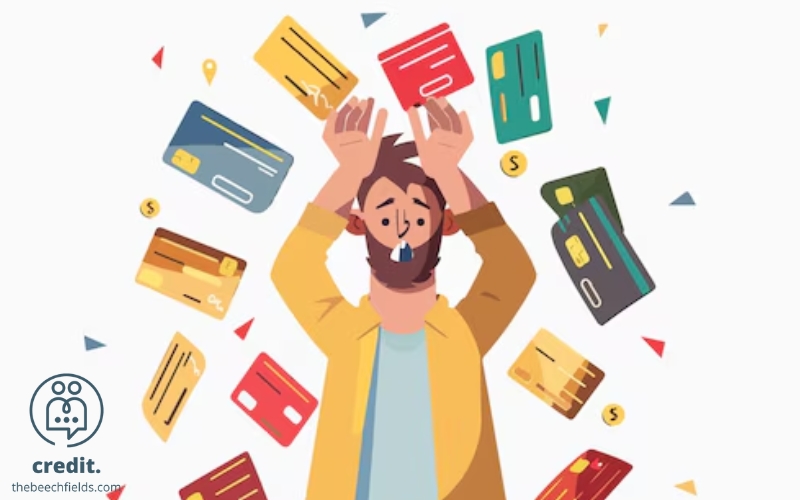In this article, we will learn about effective ways to manage credit debt to help you maintain good financial health.Is one of the important factors that help borrowers maintain financial stability and avoid falling into debt. Credit can be a useful tool to solve temporary financial problems, but if you do not manage your debt properly, you may encounter financial risks, increasing your burden in the future.
1. MAKE A DETAILED PAYMENT PLAN
One of the effective ways to manage debt is to make a detailed payment plan. When taking out a credit loan, you need to clearly understand your debts, including the total loan amount, interest rate, loan term and monthly payment amount. To avoid surprises or difficulties when the payment deadline comes, you should set up a specific schedule to pay off your debt and determine how feasible this plan is.
Making a payment plan helps you have a clear view of your financial situation, thereby avoiding fees incurred due to late payment. This way, you can also allocate your budget appropriately to ensure that loans are paid in full and on time.

2. PAY ON TIME AND AVOID BAD DEBT
One of the important factors when managing credit debt is paying on time. Paying on time not only helps you maintain a good credit score but also avoids penalties and high interest rates due to late payment. Credit institutions and banks often apply higher interest rates when you do not pay on time, which can significantly increase the total amount you have to pay.
To avoid forgetting to pay or having difficulty paying, you can use the automatic payment service from your bank account or set a reminder on your phone. This will help you always remember the payment time and ensure that the loan is paid in full and on time.
3. PRIORITIZE YOUR DEBT
If you have many different credit loans, it is necessary to prioritize your debts. Not all loans have the same interest rate, so you should prioritize paying off the loans with the highest interest rate first. This will help you minimize the interest costs and reduce the financial burden in the long run.
An effective approach is to use the “avalanche” method, which means you will pay off the high-interest loans first, then continue to pay off the low-interest loans. Alternatively, you can use the “snowball” method, which means paying off your smallest debt gradually to your largest debt. Both methods have their own advantages and help you reduce financial pressure.
4. CONSIDER THE POSSIBILITY OF A NEW LOAN OR REFINANCE
If you are having difficulty paying off your credit card debt, one temporary solution is to consider the possibility of a new loan or refinancing. A new loan can help you pay off your old loans and consolidate them into a single loan with better terms, reducing interest rates and repayment terms. This makes it easier for you to manage your finances.
However, you need to consider carefully before taking out a new loan or refinancing. This can help you solve your financial problems in the short term, but if you do not calculate carefully, you can get stuck in a debt spiral. So, before deciding to borrow more money, you need to consider your ability to pay and make sure that you can afford to repay the debt in the future.
5. IMPROVE YOUR CREDIT SCORE
Credit score is an important factor that affects your ability to borrow and the interest rate you will receive in the future. To manage your debt effectively, you need to improve your credit score. One way to do this is to pay off your debt on time, avoid bad debt and reduce the number of credit loans.
In addition to paying off your debt on time, you should also gradually reduce the number of credit loans you have, maintaining only a few necessary credit accounts. This helps improve your credit score and creates opportunities to borrow at better interest rates in the future.
6. REDUCE SPENDING AND INCREASE SAVINGS
To effectively manage your debt, you need to reduce unnecessary spending and increase savings. Cutting down on unnecessary expenses will help you save money to pay off your debt faster. Some ways to reduce spending include limiting eating out, cutting down on unnecessary purchases, or finding cheaper services.
In addition, you also need to set up an emergency savings fund to prepare for unplanned situations. When you have a savings fund, you will not need to borrow more when you encounter financial difficulties, thereby minimizing the need to borrow more credit.
7. GET ADVICE FROM A FINANCIAL EXPERT
If you find it difficult to manage your credit debt, seeking help from a financial expert can be a useful solution. Financial experts can help you plan your finances, optimize your loans, and suggest reasonable debt repayment options. They can also help you analyze your current financial situation and come up with strategies to help you get out of debt.
In addition, financial consulting organizations can also help you negotiate with credit institutions to reduce interest rates or restructure loans, making it easier for you to manage your debt.
CONCLUSION MANAGE CREDIT
Effective credit debt management is an important factor in helping you maintain a stable financial situation and avoid falling into a debt spiral. By making a detailed payment plan, paying off debts on time, prioritizing debts, and improving your credit score, you can control your loans and minimize additional costs. In addition, reducing spending, increasing savings, and receiving financial advice are also useful measures to help you manage your debt more effectively. Always remember that debt management is an ongoing process and requires patience and diligence throughout the borrowing process.
